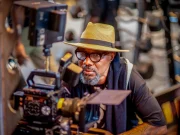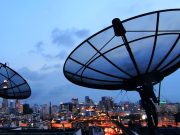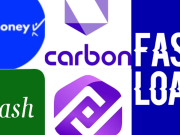Google has unveiled plans to establish four new subsea cable hubs across strategic African corridors, significantly boosting internet connectivity and digital infrastructure on the continent. The announcement was made by Alex Okosi, Managing Director for Google in Africa, in a statement issued Thursday, September 18, 2025, and shared with Techpoint Africa. The expansion under Google’s Africa Connect infrastructure program will enhance data transmission capacity and improve network resilience, directly benefiting at least 18 African countries.
This latest development marks a major escalation in Google’s long-term investment in Africa’s digital future. Building on existing projects like the Equiano subsea cable—which runs along Africa’s western coast and serves Nigeria, Namibia, South Africa, and Saint Helena—the new hubs will extend high-capacity connectivity from Egypt down to South Africa, with anchor points also planned in key tech and economic centers including Kenya, Nigeria, and Namibia. While specific technical timelines were not disclosed, the initiative signals Google’s intent to deepen its physical infrastructure footprint across multiple maritime gateways.
The company emphasized that these subsea cable investments are part of a broader strategy to close Africa’s digital divide and support the rapid growth of cloud computing, artificial intelligence, and local innovation ecosystems. With more Africans coming online every year, reliable, low-latency connectivity has become critical for education, healthcare, finance, and enterprise development.
In addition to the infrastructure push, Google announced a $9 million investment to advance artificial intelligence research and training across African universities and research institutions. This funding aims to equip approximately 3 million students with AI skills over the coming years, focusing on machine learning, data science, and cloud engineering—fields increasingly vital to Africa’s participation in the global digital economy.
Okosi underscored the importance of building local capability: “Our goal is not just to bring infrastructure to Africa, but to ensure Africans lead in shaping the technologies of tomorrow.” He noted that this new commitment builds on over $17 million already invested by Google in the past four years, which supported curriculum development, faculty training, access to advanced AI models, and research grants at institutions across the continent.
Africa’s tech landscape is undergoing a transformation, with countries like Nigeria, South Africa, and Kenya emerging as regional AI and startup hubs. A recent industry report shows that 78% of African youth now use AI tools weekly, reflecting both growing digital fluency and demand for next-generation skills. As venture capital flows increase and homegrown startups scale, robust digital infrastructure—including subsea cables and cloud regions—has become foundational.
Google’s presence in Africa already includes the Johannesburg Google Cloud region, which supports enterprise and developer activity across the continent, as well as the Umoja cable project, set to become the first direct fibre-optic link between Africa and Australia. Together with Equiano and the newly announced hubs, these projects form a growing network designed to reduce latency, increase redundancy, and lower the cost of data for consumers and businesses alike.
Over the past decade, Google has extended internet access to over 100 million people in Africa, trained more than 7 million individuals in digital skills, and provided funding and incubation support to startups in 17 countries. The Google subsea cable Africa initiative represents the next phase of that journey—not just connecting people, but empowering them to innovate, compete, and lead in an increasingly AI-driven world.
As demand for bandwidth surges with the rise of video, fintech, e-learning, and smart services, such forward-looking infrastructure investments could prove pivotal in unlocking Africa’s full digital potential.
Follow us on Instagram.
https://www.instagram.com/businessnewsng?igsh=ZXpweTdjOGF1ZXdu

























